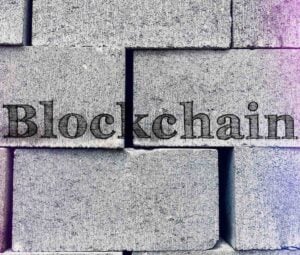 Block.one, the developer of the EOSIO open-source software, has shared an economic analysis performed by Prysm Group for a proposed Stake-Based Voting and Rewards Mechanism, which specifies an alternative model for “inflation distribution” on the EOS public blockchain network. The proposal aims to serve as a “guidepost” for the EOS community as they “consider the released code,” according to a release shared with CI.
Block.one, the developer of the EOSIO open-source software, has shared an economic analysis performed by Prysm Group for a proposed Stake-Based Voting and Rewards Mechanism, which specifies an alternative model for “inflation distribution” on the EOS public blockchain network. The proposal aims to serve as a “guidepost” for the EOS community as they “consider the released code,” according to a release shared with CI.
As mentioned in the announcement:
“Operated by a global network of token holders, the EOS Public Blockchain was created by thousands of developers around the globe who harnessed the power of EOSIO to create one of the most performant and decentralized public networks. Community-driven innovation serves as the foundation for EOS Public Blockchain Network, drawing consensus from stress testing, identifying critical issues and iterating in real time. When considering the new proposed model, developers, token holders and block producers have the opportunity to evaluate and identify the ecosystem’s core economic incentives and structure.”
The analysis conducted by Prysm, a consulting company focused on the economics and governance of blockchain or DLT networks and crypto-assets, reportedly compared the suggested model against other major networks, such as Ethereum, Polkadot and Cardano.
The insight from the report aims to offer a starting point for the community “to discuss inflation and withdrawal rates for the EOS public blockchain, as ultimately these parameters would need to be set by the community should they choose to adopt and deploy the proposed staking mechanism,” the announcement noted while adding that the analysis offers suggested ranges for “the consideration of token holders, block producers, and developers on EOS.”
Rick Schlesinger, SVP of Public Blockchain Engagement at Block.one, stated:
“EOS is first and foremost a community of people, and as its vision continues to crystalize, we aim to thoughtfully advocate for advances in the network’s economic alignment. By partnering with Prysm Group, we’ve introduced a data-driven approach that advocates for increased network resilience while democratizing inflation rewards and driving token holder alignment.”
The release also mentioned that as part of Block.one’s contributions to the EOS community, the firm introduced a bounty program, “encouraging participants to offer feedback on the code, and it will add participation in this process of testing and feedback to the discretionary voting criteria as an added incentive for block producers to actively engage and test the released code.”
For more updates on Block.one’s community projects, you may check out Block.one’s EOS Public Blockchain page.
Block.one is a software company focused on “high-performance” blockchain technologies. The company claims that it’s a “pioneer” in distributed ledger “innovation.” Block.one develops the EOSIO open-source software, which is “widely regarded as the market leader for blockchain power and scalability,” the company claims. Companies and developers across the the globe use EOSIO to develop “secure, transparent, and performant digital infrastructures,” the announcement noted.
Block.one is “committed to empowering society by providing technology and products that enable trust in transactions, transparency in systems, and efficiency in how the world works.”

